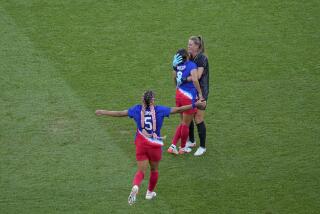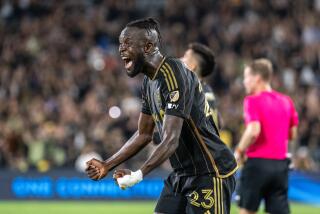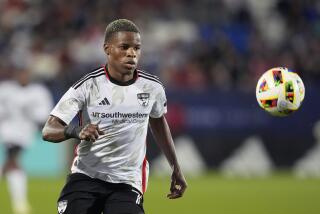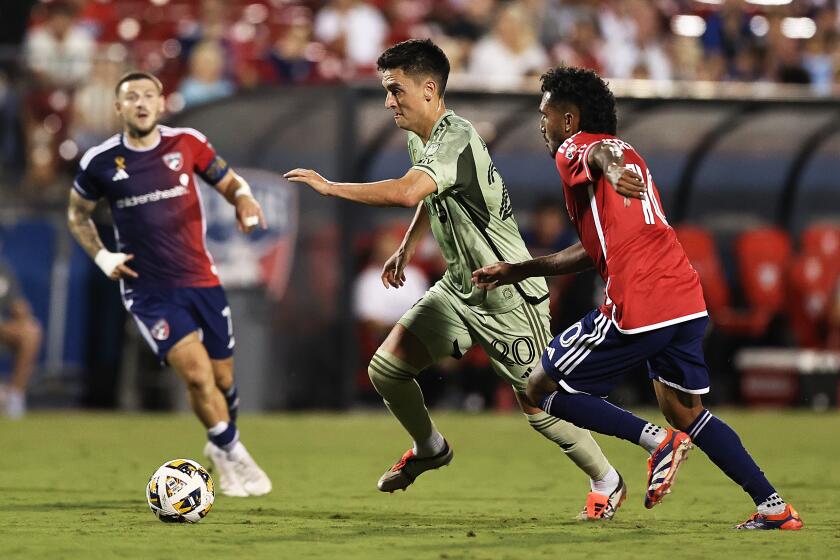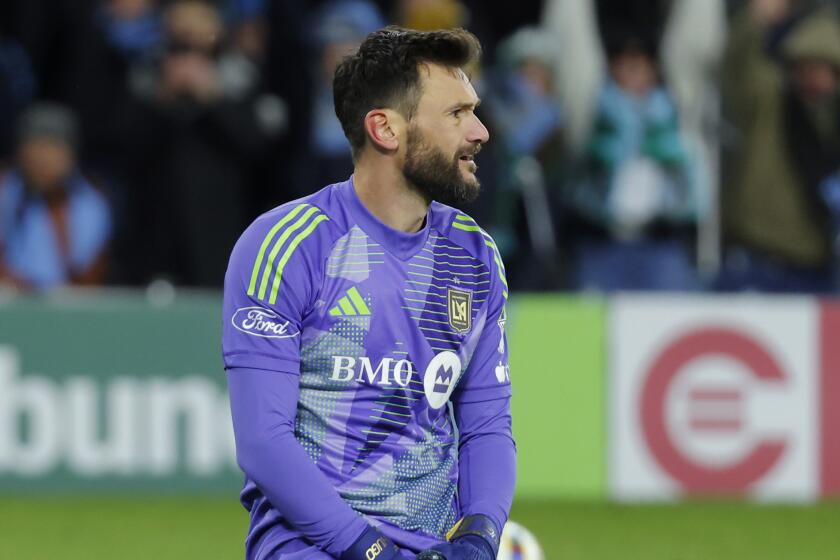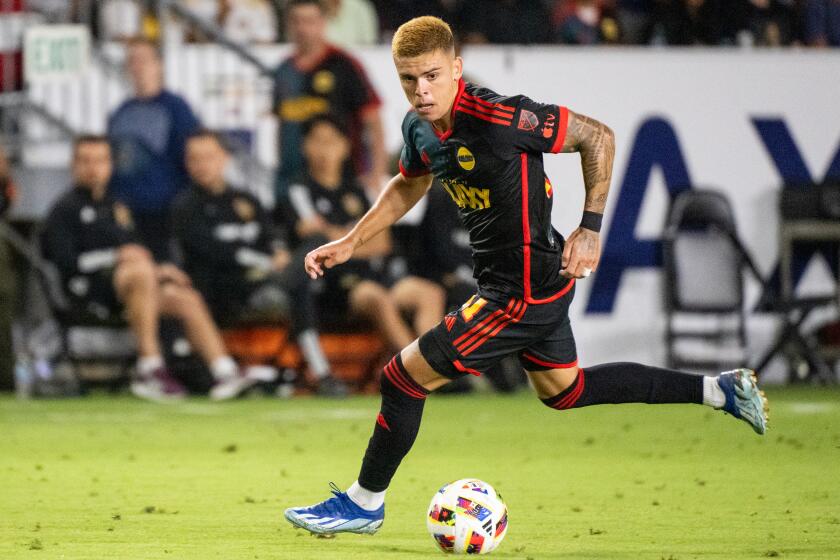Column: Injury continues to haunt Sebastian Lletget during process to come back
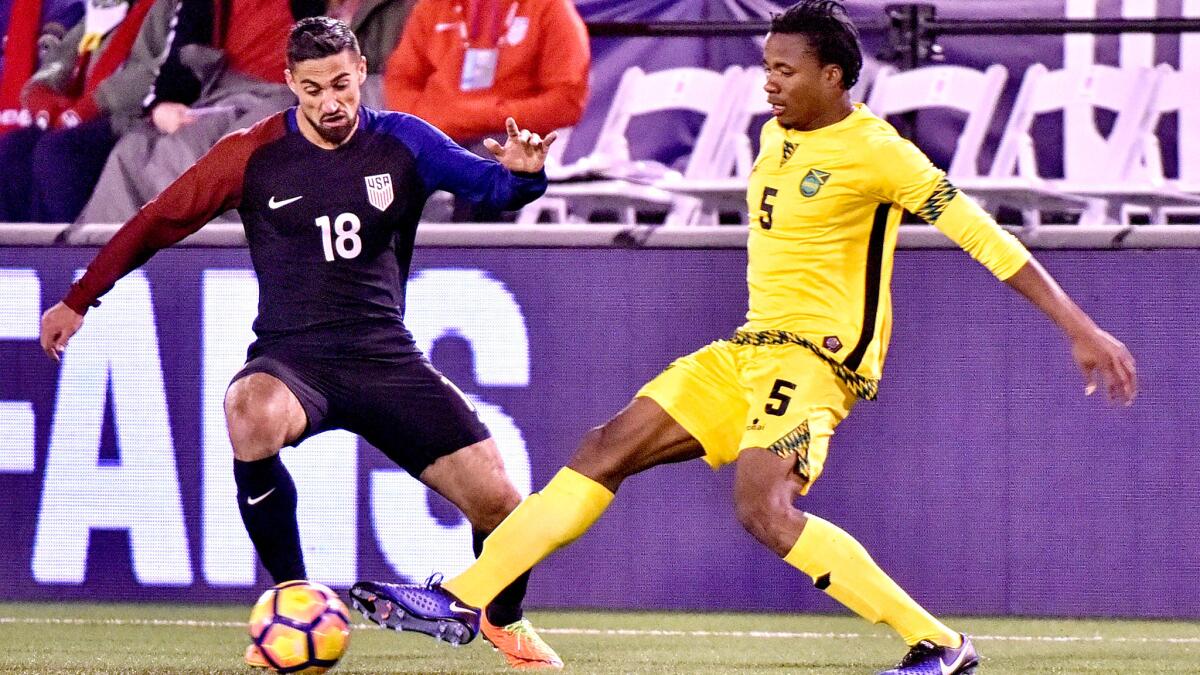
The haunting comes when it’s dark and quiet and Sebastian Lletget has nothing more than his imagination to keep him company.
More than seven months after the surgery that ended his season but may have preserved his career, Lletget still wakes in the middle of the night, bathed in sweat and doubt, wondering if he’ll ever again be as good as he was when he went down with an uncommon injury 15 minutes into his first competitive game with the U.S. national team in March.
“Those thoughts come. The negativity crawls in,” he said. “I don’t really talk about it or express it when I’m here. When I’m [at training] you always see a smile on my face.
“But I’ve had some really rough times. It’s been tough.”
Lletget, 25, was at the top of his game, fulfilling the promise that convinced England’s West Ham United to sign him as a high school junior, when Honduran defender Ever Alvarado clipped Lletget’s left foot with a rough slide tackle in a World Cup qualifier.
Five minutes earlier, Lletget had scored his first international goal, starting the U.S. on its way to an important victory. Now he was writhing on the turf at San Jose’s Avaya Stadium — five minutes from where West Ham had discovered him — with what would later be diagnosed as a Lisfranc injury, a condition in which one or more of the bones in the foot are displaced.
“I asked medical people, I asked doctors. And they’ve never really seen this type of injury, the way it happened,” Lletget said.
“It must have been a millisecond,” he said of the contact with Alvarado. “And it just ripped my ligaments and shifted a couple of bones.”
When Lletget went down, the U.S. stood last in World Cup qualifying, only to rebound and come within a goal of making it to next summer’s tournament in Russia. The Galaxy, his club team, has had a tougher time without him.
Three games into the season, Lletget had already developed a rapport with midfield mate Romain Alessandrini, stoking hopes for a productive season-long partnership. But after Lletget went down, the Galaxy won only seven of 31 games to finish last in MLS for the first time.
“I didn’t see it going this bad,” Lletget said of a season in which the Galaxy had nearly as many coaches, two, as home victories, three. “I thought we had good enough players, I thought we had quality.”
Asked whether he could have prevented the disastrous season, Lletget winces and shakes his head.
“I would have loved to have been out there to help,” he said. “I would have adjusted my style. I would have done something to really help the team. But what? I’m not a fortune teller. I can’t say.
“There’s more pieces to the puzzle. I’m just one.”
It’s too early in his recovery to say exactly where Lletget’s piece will fit in next year with the Galaxy and with the national team. He was participating in soccer activities for less than a month when he returned to the operating room in October for an operation to clean up the injured foot. He faces an arduous rehabilitation process to get ready for the start of training camp in January.
And although the Galaxy won’t rush his recovery, coach Sigi Schmid said he thinks getting Lletget on the practice field at least once this year will be helpful.
“We don’t want his first training day to be in 2018,” Schmid said. “We want his first training day to take place in 2017.”
Lletget said he has tried to use the down time in constructive ways. He took a deep dive into photography, shooting several Galaxy games, and spent quality time with his family for the first summer in years.
“Through this journey I’ve changed a lot as a person,” he said. “I’ve just bettered myself. So I can say that’s one positive.”
But during those dark moments late at night, Lletget said all kinds of questions continue to enter his mind. Some haven’t left.
“Am I going to be the same player?” he asked himself. “How much do I have to really work to get back?”
Back in the light of day, Lletget turns optimistic, pushing the doubts and the mind-numbing rehabilitation exercises aside and promising the experience will make him better.
“I’ve studied the game from a different point of view, I’ve really learned different things,” he said. “About myself, about the sport, about the team, about the U.S. team.
“I feel like I’m more ready than ever. The last thing is the physical part. So that’s where I’m at now.”
Follow Kevin Baxter on Twitter @kbaxter11

